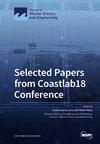基于混合驱动方法的海上地层测试采样时间智能预测
IF 2.7
3区 地球科学
Q1 ENGINEERING, MARINE
引用次数: 0
摘要
地层测试广泛应用于海上油气开发,在此过程中预测纯流体的取样时间非常重要。然而,现有的地层测试方法存在持续时间长、效率低等问题。针对这些问题,本文提出了一种基于物理模型和机器学习模型的混合驱动方法,用于预测地层测试中的流体取样时间。在这一混合驱动模型中,我们建立了一个数字孪生模型来模拟大量实验数据(6000 个案例,总计超过 100 万个数据点),并利用物理公式显著增强了特征之间的相关性。通过应用先进的机器学习算法,我们实现了流体取样时间的实时预测,准确率高达 92%。此外,我们还利用优化器将模型的准确率提高了 3%,最终达到 95%。该模型为优化地层测试提供了一种新方法,对高效开发海上油气具有重要意义。本文章由计算机程序翻译,如有差异,请以英文原文为准。
Intelligent Prediction of Sampling Time for Offshore Formation Testing Based on Hybrid-Driven Methods
Formation testing is widely used in offshore oil and gas development, and predicting the sampling time of pure fluids during this process is very important. However, existing formation testing methods have problems such as long duration and low efficiency. To address these issues, this paper proposes a hybrid-driven method based on physical models and machine learning models to predict fluid sampling time in formation testing. In this hybrid-driven model, we establish a digital twin model to simulate a large amount of experimental data (6000 cases, totaling over 1 million data points) and significantly enhance the correlation between features using physical formulas. By applying advanced machine learning algorithms, we achieve real-time predictions of fluid sampling time with an accuracy of up to 92%. Additionally, we use optimizers to improve the model’s accuracy by 3%, ultimately reaching 95%. This model provides a novel approach for optimizing formation testing that is significant for the efficient development of offshore oil and gas.
求助全文
通过发布文献求助,成功后即可免费获取论文全文。
去求助
来源期刊

Journal of Marine Science and Engineering
Engineering-Ocean Engineering
CiteScore
4.40
自引率
20.70%
发文量
1640
审稿时长
18.09 days
期刊介绍:
Journal of Marine Science and Engineering (JMSE; ISSN 2077-1312) is an international, peer-reviewed open access journal which provides an advanced forum for studies related to marine science and engineering. It publishes reviews, research papers and communications. Our aim is to encourage scientists to publish their experimental and theoretical results in as much detail as possible. There is no restriction on the length of the papers. The full experimental details must be provided so that the results can be reproduced. Electronic files and software regarding the full details of the calculation or experimental procedure, if unable to be published in a normal way, can be deposited as supplementary electronic material.
 求助内容:
求助内容: 应助结果提醒方式:
应助结果提醒方式:


